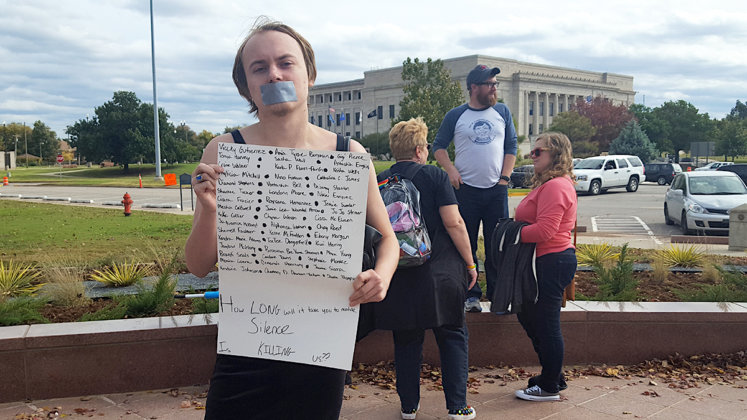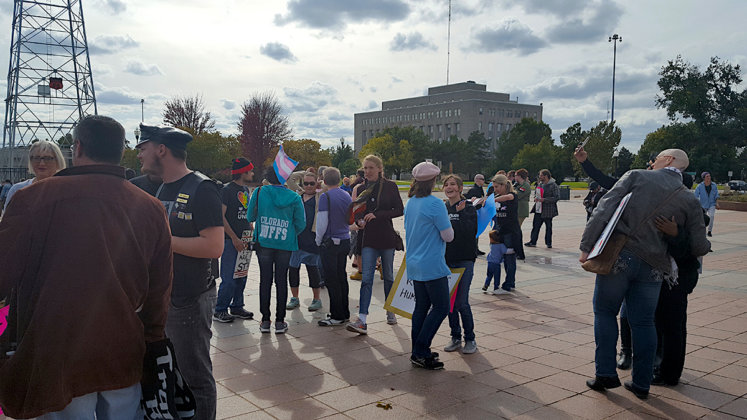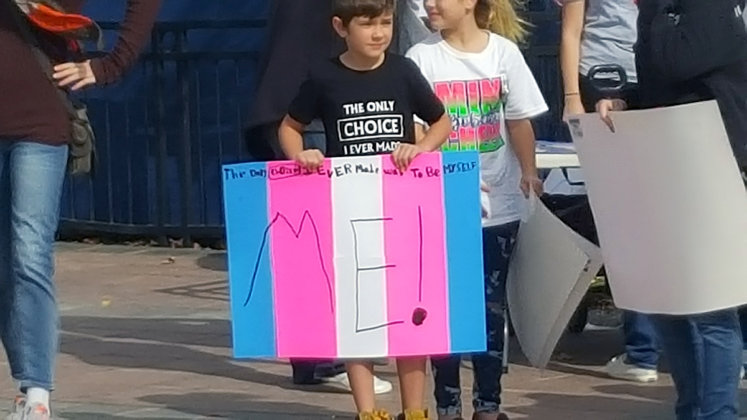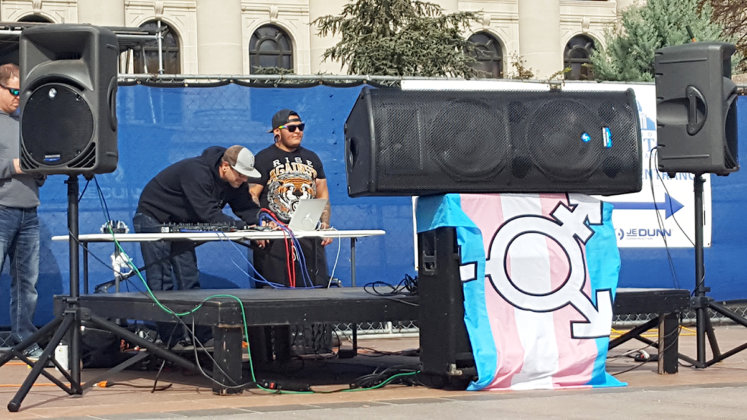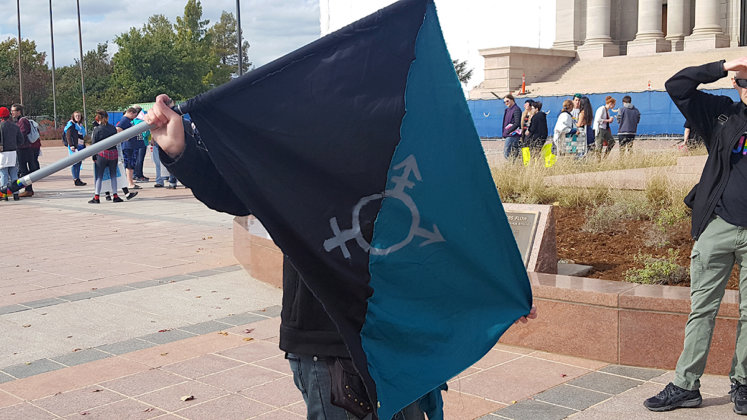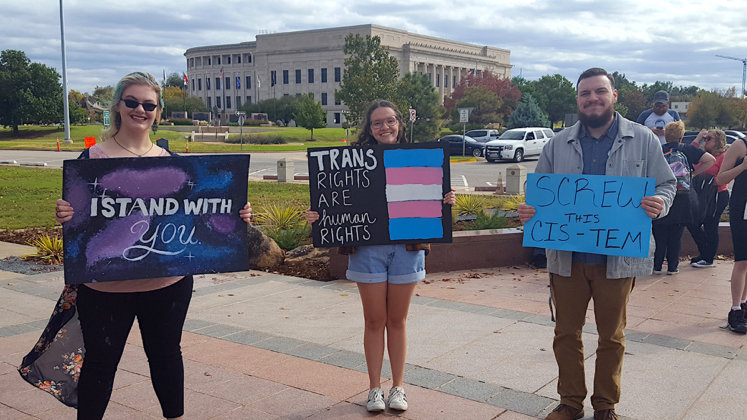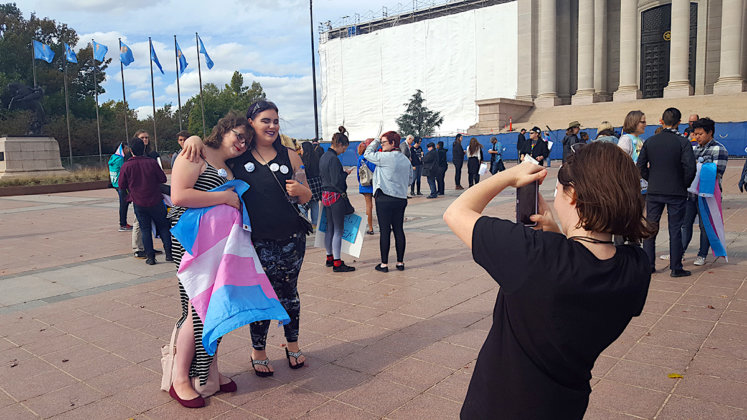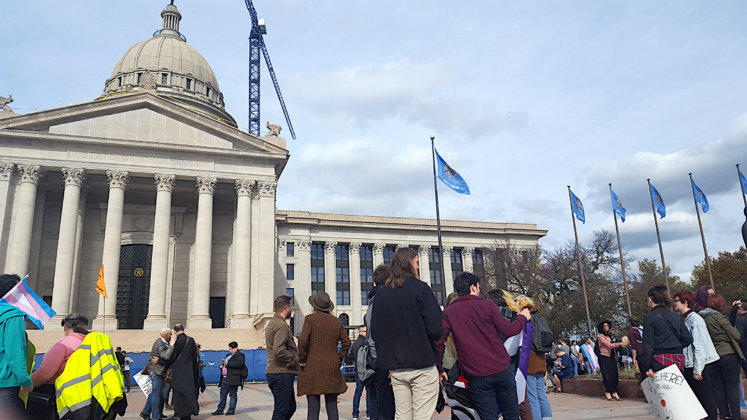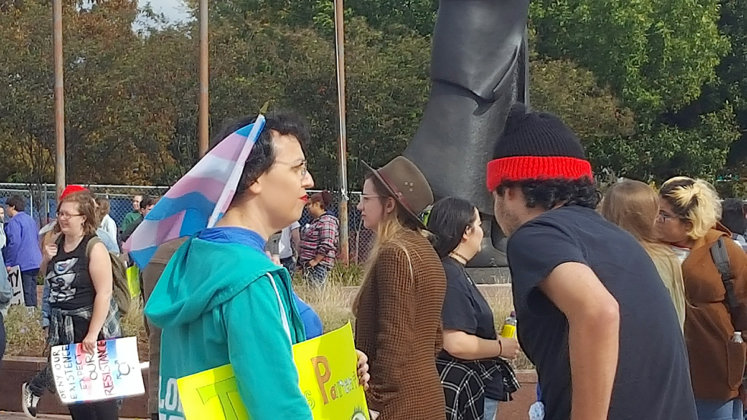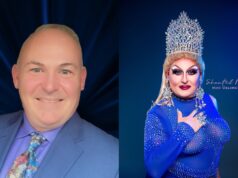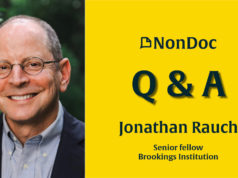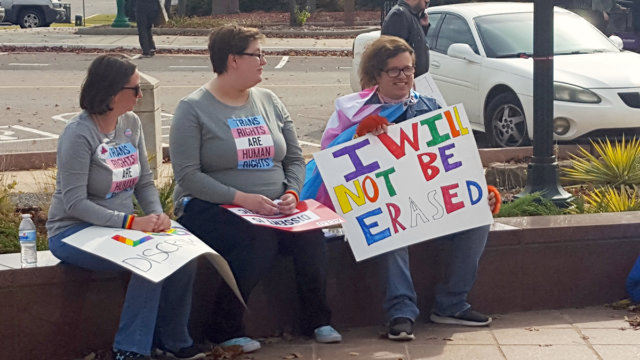

I had not been down to the Oklahoma State Capitol in ages, but I decided to head to a rally on Nov. 3 for transgender and intersex civil rights to show my support for the LGBTQI community’s efforts.
Compared to others I had seen in the news recently, I was surprised at how quiet this gathering was: a crowd in the ballpark of about 35 people, some with signs bearing phrases along the lines of, “We will not be erased,” or featuring the colors of the transgender community’s flag; low, contemporary music played amid small interspersed groups; a mannequin next to the event organizer’s desk where supporters could leave kind words using markers.
This rally and others like it across America came in response to an unreleased Department of Health and Human Services memo back in October 2018 that would narrow the definition of gender identity based on an individual’s biological characteristics assigned at birth. Alongside barring transgender people from serving in the U.S. military and risks to health care rights, the Trump administration’s direction in regard to transgender and intersex citizens is a major point of concern for the community.
Keeping that in mind, this makes the turnout at the Oklahoma State Capitol protest rather paradoxical. Seeing such overt dangers to the legal rights of transgender and intersex individuals, it initially stumped me why there was such a low turnout. It wouldn’t hit me until a few days later that the absence of turnout is also an effect of American notions of how gender identity and sex relate to each other. One key struggle that LGBTQI communities face is social as well as political.
Rigid customs make change difficult
The United States of America has widespread and pretty rigid customs about gender identities and sexual natures, evidenced by gendered toys for children, division of bathrooms along gender lines and the iconography of the “nuclear family.” Going against these norms puts people who are transgender and homosexual in a position of potential social ostracism alongside conservative worldviews that push more standardized traditions. Such traditions oppose the freedom of expression that makes people with marginalized sexual identities feel comfortable in their own skin.
I applaud the fact that, unlike some other protests, the Nov. 3 rally at the State Capitol remained peaceful, as that aspect shows the nature of the LGBTQI community as a loving one that rejects hate and discrimination as pathways to change. Simultaneously, I feel passivity can only hold so long against hard-line actions the government takes, even though reticence to stand up is understandable.
At its core, the struggle for civil rights for LGBTQI people will continue a long, rough path.








